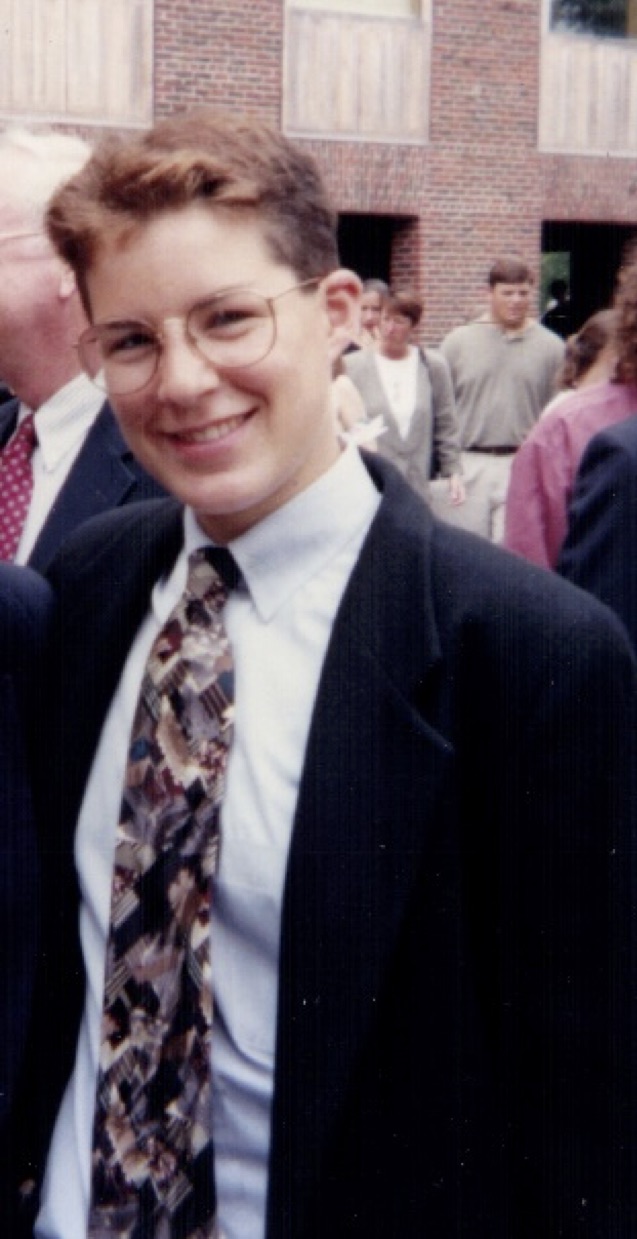
Up to this point, the blog posts I've done have mostly provided the backstory to the protagonist of Continental Divide and explained a little bit about character and personality. But in this post, I want to talk a bit more specifically about motivation. When I teach fiction, I try to impress upon my students that the root of character is desire. What does your character want? What's keeping them from getting it? Those are the questions that propel a story forward... and it was no different in writing this novel and imagining the desires of my main character, Ron.
The picture above is of me, the day before I am to graduate from Phillips Exeter. It is June, 1996. I have been out as transgender, living as a boy, for about ten months. If you just hop from the previous picture - me in my hockey uniform with a ponytail - to this picture - me in a coat and tie with short hair - it might seem kind of sudden, disjunctive. But from the inside, this felt entirely natural and predictable. For my whole life, I'd been looking in mirrors and feeling either surprised or disappointed by what I saw. For my whole life, I'd had people referring to me as "she" and "girl" and constantly wondered why they didn't understand that this was not who I was. So, this boy who's smiling at the camera... that is definitely me and I had definitely always felt like this person.
In many ways, I was really happy at this moment: I had reached the fulfillment of a major desire, to live as a boy. But even as I came out, it wasn't exactly how I wanted it.
I titled this blog post "Social." That, in part, refers to the fact that this is what is often called a "social transition." When I came out as transgender, I changed my name, my pronouns, my clothes (a bit) and my mannerisms (a bit). But I didn't take hormones and I didn't have surgery, thus a "social" transition.
But I also call this post social because society, social interactions, are where I felt and experienced gender the most (I think this is true for everyone). And, at the time that I came out, I was surrounded by people who had known me as a girl. My family. My friends at home. My classmates and teammates and dormmates at boarding school. Many of them were great about my name and pronouns, but I felt like I was living in the shadow of my past. Most of the people in my life had known me as a girl. Most of them looked at me and thought of me first as a girl and then reminded themselves to treat me as a boy.
I wanted to be a boy. To have people treat me as one, without any sort of filter or qualification or footnote.
And that's the desire that links my experience to my protagonist's experience. He comes out in college and socially transitions and finds himself confined by the label "transgender" and the feeling that he isn't really, 100% a boy... the novel sets out to explore what this desire unleashes.